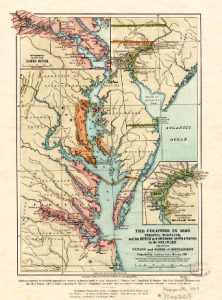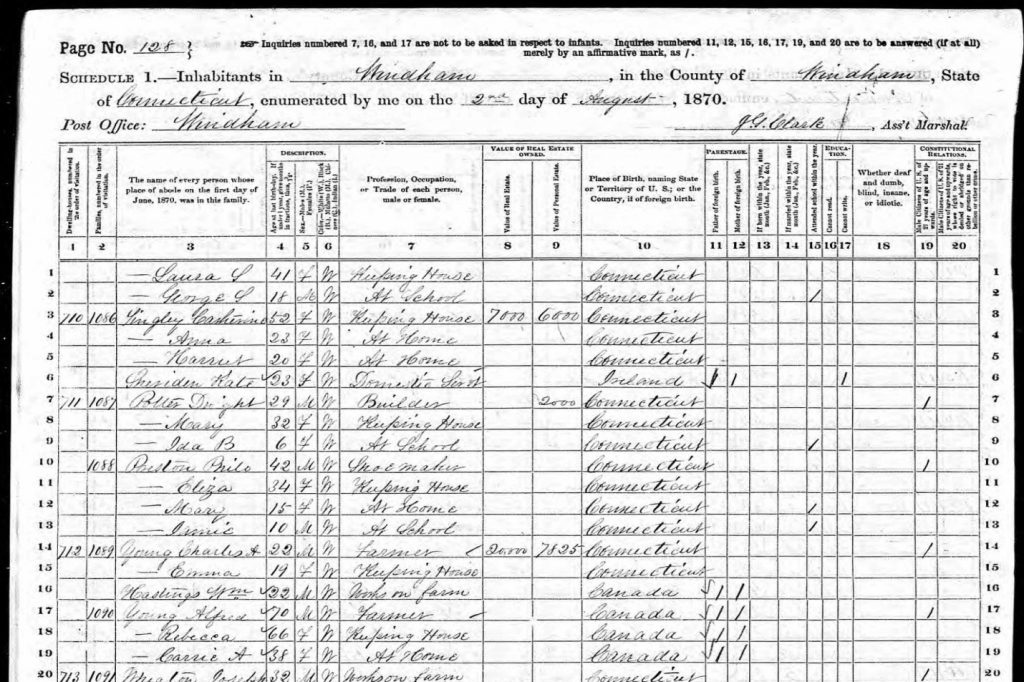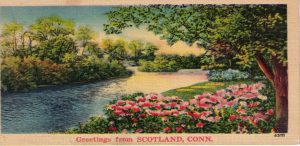“It is good people who make good places.” – Anna Sewell

Like most of us discovering our family history, I rely heavily on census records. Often we come across numerous variations in the spelling of names of people, places, and things as we review those records. Recently, in looking through a few extended branches of my tree in differing U.S. Federal Census records, I discovered that a place can mean many different things.
I found an example of this with my great-great-grandfather, John Henry Record (1840–1915). John Record was from Maryland’s Eastern Shore, and (for the most part) records reflecting his origins, and those of his parents, are generally consistent with that area. However, with the arrival of the U.S. Federal Census for 1900 my progenitor states that his mother was born in Sweden. Sweden? Now I have no latent knowledge of eating lingonberries, or any tradition of making of a special raggmunk, so outside of a DNA test, how could I be even remotely Swedish?[i]
It isn’t unusual for information to conflict – but I had to wonder what “Sweden” meant on line 79 in this record. A search of the history of the area surrounding the Eastern Shore of Maryland revealed an area called “New Sweden” that grew up along the Delaware, and according to The Swedish Colonial Society is described thus: “The colony eventually consisted of farms and small settlements along both banks of the Delaware River into modern Delaware, New Jersey, Pennsylvania and Maryland.”[ii]

So while my Swedish ancestry may require more investigation, I see that my ancestor may have been describing a geographical area of his mother’s native Maryland – or likely Delaware. I won’t put my Swedish cookbooks away just yet, but at least now the place begins to make sense.
Just when I thought that this might be my exception, I discovered a strange “place” for the birth of my great-great-great-great-grandparents, Alfred Young, Jr. (1800–1877) and his wife Rebecca Davis (1804–1884). For some reason, in 1870 they stated their place of birth as “Canada” and, further, the boxes are marked indicating their parents were of “foreign birth.” Previous records state that both they (and their parents) were born in Connecticut, so why report “Canada” in 1870, and why “foreign birth?”

I found the answer to this in the cultural/historical geography of the area, and not in the stated place of birth. In this instance, “Canada” was a part of (and an old name for) an area of Windham County. This area of the county was known as “Canada Society” or “Canada Parish,” an area that became incorporated into Hampton, Connecticut about 1786.[iii] It was good to learn that my ancestors had not been previously trying to evade the immigration authorities of the time, but were referring to a very specific area and community within Windham County. The indication that they (or their parents) were of foreign birth seems a liberty of the enumerator, perhaps taking the answers given too literally.

Lastly, and most recently in my research on the Young family of Windham, I was looking for a possible “Cousin Alvin,” who stated in the 1880 census that his parents were born in “Scotland.” Scotland? It didn’t seem likely, but it also wasn’t out of the ordinary. I wondered if this was similar to the statement of “Canada” – and just what Alfred and Rebecca Young had originally stated. Oddly, in this case, I hadn’t found the “right” Alvin Young. Still, with an actual township of “Scotland” in Windham County I needed to determine just how this possible cousin Alvin was answering the question.[iv] This time there was no definitive answer. I could only throw in my lot with the census questions themselves, and trust in the enumerator moving on from there.
As you can tell from all of this it is a big world, and that what anyone might call “Sweden, Canada, or Scotland” may or may not mean those places at all, but may refer to a more exact geographical area or a sub-culture within one. Finding these places reminds me that in family history we can at times not only be deceived by taking the facts contained in a record too literally, but that we must always dig deeper for what our ancestors and family actually intended to say.
Welcome to Scotland!
Notes
[i] Lingonberries: Per Wikipedia, the Swedish name for a fruit native to boreal forests and arctic tundra, often used in jams and popular in the Nordic countries; Raggmunk: A Swedish potato pancake, fried in butter, and often served with pork, and, yes, even lingonberries.
[ii] “The Swedish Colonial Society”: Per Wikipedia, “America’s oldest organization dedicated to the study and preservation of New Sweden history.”
[iii] Richard M. Bayles, archive.org, “History of Windham County…” (1889), Chapter XVIII, “Town of Hampton.”
[iv] Ibid., Chapter XVII, “Town of Scotland.”
I have a similar “Swedish connection.” One of my ancestors was listed as having been born in Sweden, which seemed highly unlikely. Turns out it was an error for Swedesboro, New Jersey.
What a great point! Here in Maine is a town called NORWAY. Census records show many people said to have been born in Noway who never saw a lingonberry in their lives.
Fort Ashby in West Virginia was formerly known as Frankfort and then Alaska — not a foreign country, but just as far away.
Thank you for this insight! My paternal great great grandfather was born about 1816-18, but where? One of the census reports indicated Pennsylvania, but I remain skeptical of that. I had not thought that it might be a township or community in the area of Indiana where he lived. I have punched at this brick wall for years without success. Now I have another location to consider.
Excellent research and insights with a fine bit of woven humor. Thank you so much for the kind mentoring and writing style.
Excellent reminder! I recall at one point being confused by my family from Ontario until I realized it was a county in NY across Lake Ontario from Ontario, Canada!
I had a similar ‘ah ha’ moment, when I discovered the Scotland District, in the town of York, Maine which was every early. And there are more: Scotland, Chambersburg, PA; Scotland County, MO; and Scotland, Archer, TX. A record about a person who was from, or born in Scotland, can make you scratch your head!
I’m not sure whether someone was pulling the leg of the census taker in 1930, or whether he was totally confused and/or drunk, or what…but my maternal grandfather and his mother are both listed as having been born in England, when they were in fact both born in Clark County, Washington! For some reason my great-grandfather (father/husband of the above) was listed as having been born in Washington, when he was actually born in Oregon. And there is no locality in SW Washington called “England” or anything close!
I once spent some time trying to track a person in Maine who was born in China!
I was doing some research on my family who lived in Windham Connecticut. And ran into your article as well as a book on the Wyoming Valley which mentioned their holdings in Connecticut in this town And I ran into A real estate ad for a home built in the 1700s named for general Isaac PARRISH in an area called Parish Hill. I had been having difficulty with this research and after finding your article ,and the book I mentioned, I suddenly found the answers I have been hunting for for months This is been incredibly helpful As it happens, I’m a direct descendant send of John Parish of the Winthrop Fleet and Isaac Parrish of Windham Connecticut as well as Zebulon PARRISH of the Wyoming Valley. Altogether I have just had filled in a lot of blank spaces and it has led me to some great information
I’ve also discovered that sometimes confusing names can lead you to the most amazing information. I discovered Boston in England in the area called East Anglia and found the church where the Puritans made their plans to sail to the New World Thanks again
Apologies to those of you who read this — my email is a bit glitchy and it may turn my notes into gibberish. It happens fairly regularly